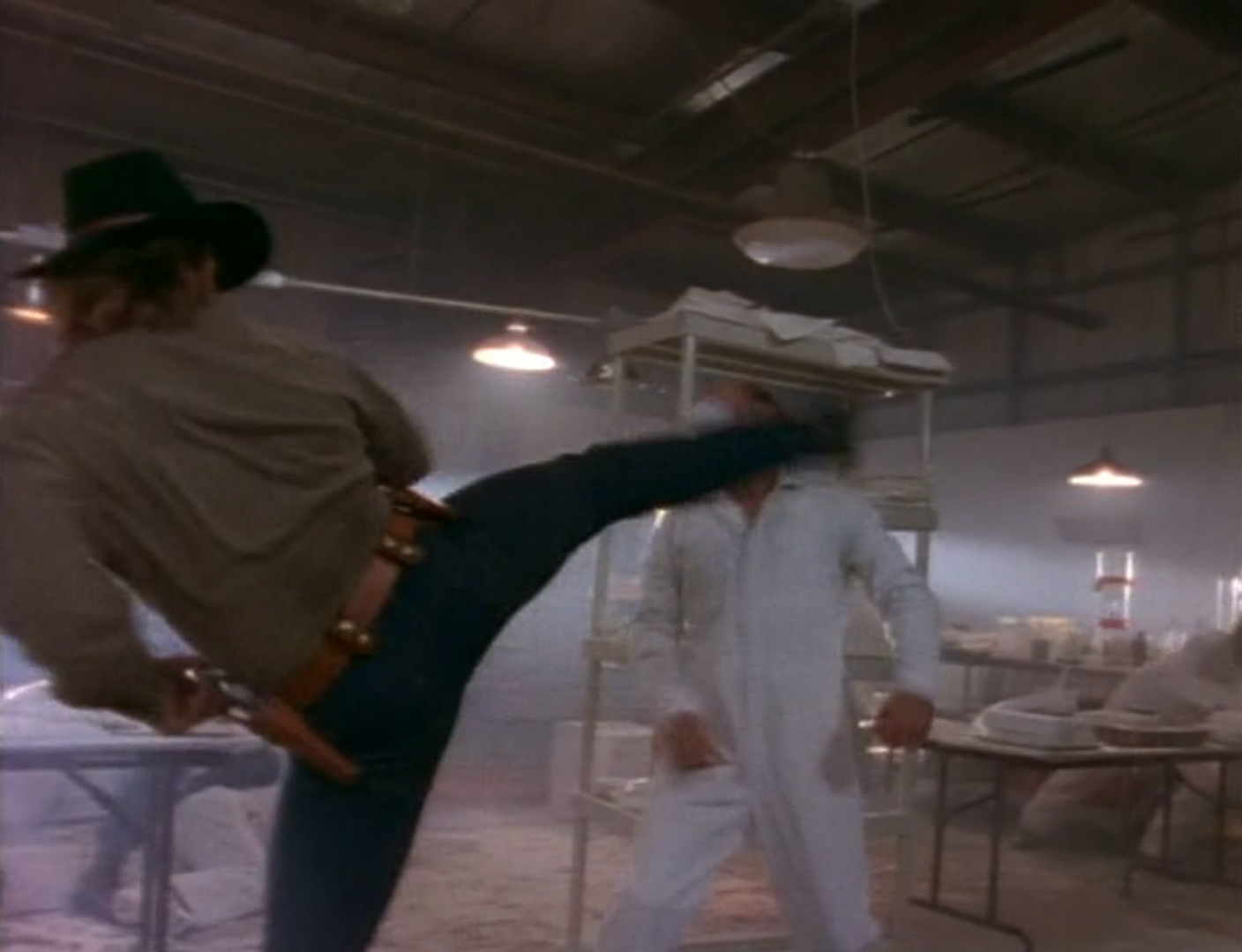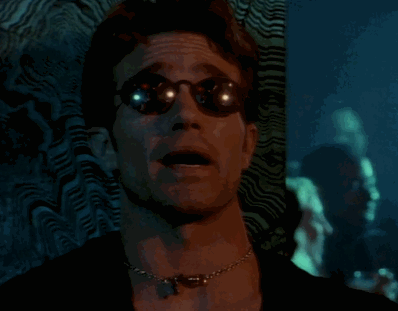The Many Tropes of Chuck Norris’ Walker, Texas Ranger: A Working Glossary
In any show that spans nearly a decade, it’s hard not to rely upon a few tropes and plot devices that work. Walker, Texas Ranger is no exception to this rule. By design, most WTR episodes play out like standalone action movies. In doing this they don’t typically leave much room for character development, BUT, there is plenty of room for action/morality-packed tropes. To make things easier on the WTR viewer (or anyone listening to our podcast), below is a list of definitions for many of these tropes. We will periodically be adding to this list, but we hope it makes your viewing/listening experience more enjoyable. So, buckle up, prepare to put your beliefs in the laws of physics on hold and take some notes!
Roundhouse Kick - A trademark move from Chuck Norris and the namesake of our podcast, we consider the ROUNDHOUSE KICK to be a spinning kick, where the kicker makes a complete spin before delivering a blow. This is a classic finisher at the end of long fights (see “EASY WAY or the HARD WAY” below). Roundhouse kicks are more effective if the victim lands in a pile of empty boxes or is launched through a window or door. For our statistical purposes we do not count roundhouses from other rangers or villains.
Flashback - Flashbacks in WTR are prone to all the tropes you might see in action movies: sepia or faded tones, reverb on audio and blurry filters. These are the brief flashbacks. There are also a series of ‘flashback’ episodes that featured all WTR actors portraying frontier characters. Those are bad.
Vehicular Transference - Have you ever jumped from one moving vehicle to another? Walker does this all the time in a process we call VEHICULAR TRANSFERENCE. This is often how Walker ends a long vehicle chase. There is usually great musical fanfare and lots of camera angles. Also, there’s frequently some strange eye contact between Walker and his intended prey.
Fender Boomer - Did you know that cars are nothing more than exploding death traps on wheels? In WTR, cars often explode at the smallest sign of trouble (see SUPERSHOT below). Thus, a simple fender bender can turn a 1995 Buick into a rolling fireball. Exploding cars are also much lighter (because physics) and typically leave the ground during the explosion.
One Man Army - Most first responders rely upon teamwork to get the job done. Walker on the other hand is often quick to take matters into his own hands. Building rigged to blow? Group of hostages? Pack of goons in the woods? No matter, Walker will systematically sneak in and take out the threat. “Doesn’t Walker have a partner, Trivette?” you may ask. Yes he does. And as a partner, Trivette is often relegated to radio duty during Walker’s showboat antics.
Moral Compass - Did you leave an episode of Walker feeling like you were cheated of sweet action scenes? Chances are it was at the hands of some silly moral lesson. If the above tropes are any indication of the comfort zone of WTR writers, it should come as no surprise that their attempts at teaching moral lessons typically fall flat.
Walker-Talkie - Have you ever seen an action movie where the hero takes out a bad guy and uses his radio? So have the writers for WTR. I’m thinking of Die Hard when John McLean uses the villains radio to get information on the enemy. It’s pretty badass. That said, Walker doesn’t need information; when he gets his hands on an enemy radio, he just warns them that he’s coming for them. Simple, but effective.
Supershot - In the WTR universe, Walker is well aware of the fact that cars explode at the drop of a hat. He combines this fact with his superhuman marksmanship to deadly effect in an action we call the SUPERSHOT. Supershots can occur in self defense (i.e. when a car is bearing down on him) or to stop a runaway vehicle from getting away. In either situation, Walker usually walks into the middle of the street, aims carefully, pulls the trigger and the offending vehicle goes boom. Epic!
“Easy Way or the Hard Way” - Since Walker is rarely ambushed, he often has his gun drawn and pointed at a villain before they can react. Of course, he likes to ask their preference. SPOILER ALERT: they never pick the easy way. Walker will then throw down his weapon and engage in hand-to-hand combat. DOUBLE SPOILER ALERT: Walker never loses; he will roundhouse them into oblivion!









